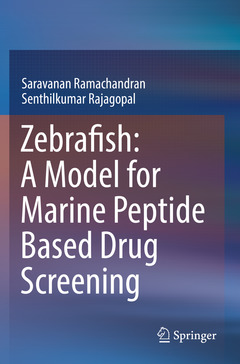Dr. Saravanan Ramachandran is an Assistant Professor of Marine Pharmacology at the Faculty of Allied Health Sciences, Chettinad University Chennai, India. He completed his PhD in Marine Biotechnology at Annamalai University, India. His research interests focus on drugs from marine organisms. He has received two research awards from the Indian Council of Medical Research and the Centre for Marine Living Resources and Ecology, Kochi, India, and he has published 40 research articles in international/national journals. He is a member of Society for Biotechnologists (India), International Neurotoxin Association, holds 2 patents and 1 copyright and has submitted 15 gene sequences to the NCBI. Currently, he is serving as the principal investigator of a research project funded by the Govterment of India Department of Biotechnology.
Dr. Senthilkumar Rajagopal is an Assistant Professor at the Department of Biochemistry, School of Life Sciences at Rayalaseema University, Kurnool, India. He completed his PhD in Biochemistry at Annamalai University, India, and his postdoctoral fellowship at various Universities in the USA, including the University of Virginia, Harvard and Virginia Commonwealth University. Dr. Rajagopal is a recipient of the Rameshwardasji Birla Smarak Kosh Endowment award from Mumbai Medical Trust, and the Ramalingaswami Re-entry Fellowship from the Department of Biotechnology, Ministry of Science and Technology, Government of India. His research has addressed protein kinase C modulation of calcium channels currents, and was the principal investigator of a major project entitled “G-protein coupled receptor mediated intracellular mechanisms by alcohol-induced digestive disorders in the gastrointestinal tract”. Other interests include G-protein coupled receptor signaling pathways in smooth muscle physiology and neurotransmitters transporters to central nervous system. Dr. Rajagopal is a life member of a number




